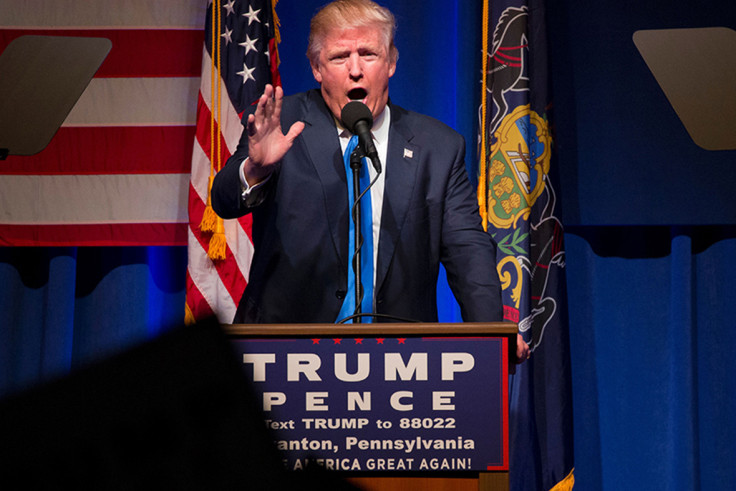Trump has created a toxic environment for Muslims – Americans who oppose bigotry must act
Religious freedom for all is at stake – over the next four years, America must unite to bridge our divisions.
When Donald Trump called for the deportation of Muslims en masse, some Americans gasped in revulsion at such blatant prejudice. Others cheered him on for articulating their long held views.
These anti-Muslim statements, along with many more, have created a toxic environment for Muslims. One that has contributed to a wave of discrimination against Muslims, and moved Islamophobic rhetoric from the right wing fringes into the mainstream.
But such divisive hatred threatens religious freedom for all in America.
Since 9/11, discrimination against Muslims has been steadily on the rise. Ranging from employment discrimination, school bullying, mosque vandalisations, hate crimes and denial of public accommodations, American Muslims' civil rights are being violated.
For years, civil rights advocates have been warning that anti-Muslim discrimination was not merely a temporary backlash in response to the September 11 terrorist attacks. Rather, America was experiencing a seismic shift in its race politics wherein Islamophobia has become an entrenched prejudice in American culture. And as a consequence, anti-Muslim discrimination would continue to rise if left unaddressed. These warnings, however, have largely fallen on deaf ears.
Most Americans were either unaware of this troubling threat to religious freedom or interpreted such discrimination as anomalies caused by a few individual bigots. Few recognised the systemic pattern of prejudice because overt Islamophobia was primarily peddled among the far right. Moreover, many Americans hold fast to the ideal that America is a pluralist and inclusive country that prides itself in safeguarding religious freedom.
Trump's candidacy has exposed the contradictions between American values and American practices.
When Trump announced he would require Muslim Americans to register with the government and carry special identification noting their faith, his growing number of supporters cheered him on. Similarly, when Trump called for surveillance of mosques, he was expressing what many Americans have believed for years.
While many lament Trump's message of bigotry, not only against Muslims but other minorities as well, he paradoxically did the country a favour.

Trump's growing number of followers cheering him on with each bigoted statement was clear proof that hate was no longer fringe. By openly expressing the prejudice in the hearts of a critical mass of Americans, Trump is forcing Americans who oppose bigotry to act.
No longer can liberals or conservatives claim that racism or religious bigotry is a relic of the past. Nor can they continue to discount the multiple polls in the last fifteen years showing that nearly half of Americans believe Muslims are terrorists, do not want a Muslim as a neighbour, or want the government to spy on their fellow Americans merely on the basis of their religion.
Trump's growing number of followers cheering him on with each bigoted statement was clear proof that hate was no longer fringe
To their credit, many Americans opposed to the religious and racial bigotry acted by not voting for Donald Trump on Election Day.
But with Trump taking an unprecedented victory in the US election, this will not only demote Muslims to de facto second class citizenship but also other religious and racial minorities. Those who were once on the fringes of society, stereotyping Blacks as criminals and Mexicans as rapists, will become empowered to mainstream their hate.
They will be appointed to government positions with the legal authority to use the power of the state to act on their prejudices. Rather than be a place where American values of pluralism, tolerance, and inclusion are disseminated, a Trump presidency will sow the seeds of discord.
America faces a serious problem. A critical mass of its citizens hate Muslims. And because prejudice against one particular group is indicative of prejudice against other groups, as evidenced by the recent increase in anti-Semitism, religious freedom for all is at stake.
To be sure, the next four years require concerted efforts by all of us to bridge the divisions that ail American society. These efforts will be much more difficult with Donald Trump as president.
Sahar Aziz is professor at Texas A&M University School of Law, nonresident fellow at Brookings Doha Center and author of From the Oppressed to the Terrorist: Muslim American Women Caught in the Crosshairs of Intersectionality
© Copyright IBTimes 2025. All rights reserved.






















